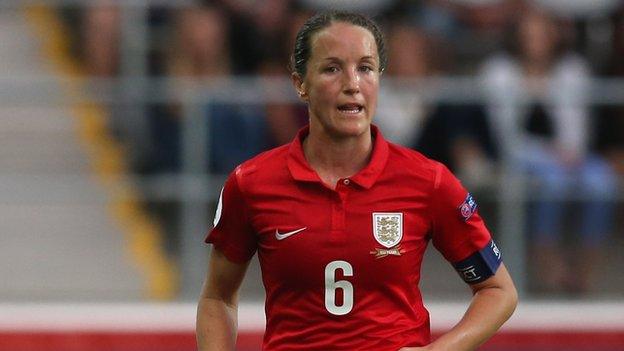Casey Stoney: England captain reveals her sexuality for first time
- Published
England women's captain Casey Stoney no longer frightened of what people might think
England women's captain Casey Stoney has spoken publicly about being gay for the first time.
Stoney, 31, told BBC Sport she decided to come out after the positive reaction to diver Tom Daley saying he was in a relationship with a man, and because of the "loving relationship" she is in.
"I was living a lie," Stoney said. "I've never hidden it within football circles because it is accepted.
"But to the outside world, I've never spoken about my sexuality."
The Arsenal Ladies defender added: "I feel it's really important for me to speak out as a gay player because there are so many people struggling who are gay, and you hear about people taking their own lives because they are homosexual. That should never happen.
"How can I expect other people to speak about themselves if I'm not willing to do that myself?"
Stoney, who has 116 caps for her country and also captained Great Britain in the London Olympics, said the decision had taken "a long while to get to" but that "a huge weight" had been lifted from her shoulders.
She said: "For the last 10 years I've always cared too much what other people think. I was frightened of the stereotypes, frightened of being judged, frightened of what other people might say, especially the abuse you can get through social media.
"But I think I'm in a place where I feel so comfortable in my own skin, I feel so loved by the person I'm with, that I feel I can face anything."
Stoney revealed the lengths she went to in order to keep her private life a secret and spoke openly about why other women football players have not come out as gay.
She also said it was "incredible" that World Cups have been awarded to Russia and Qatar given their attitudes towards homosexuals.
Russia, currently staging the Winter Olympics in Sochi, is the host for the next World Cup after this summer's in Brazil, but there have been several protests after it passed new laws banning 'gay propaganda' aimed at under 18-year-olds - widely seen as an attack on gay rights.
And with homosexuality illegal in 2022 host country Qatar, Fifa president Sepp Blatter said gay fans going to the tournament should "refrain from sexual activity"., external
By publicly coming out, Stoney becomes the most high-profile active gay footballer in England.
Ex-Aston Villa player Thomas Hitzlsperger retired before he revealed he was gay in January, while former Leeds player Robbie Rogers also hung up his boots last year before returning to play for David Beckham's former team, LA Galaxy.
Stoney said: "I looked at the response that Tom Daley got. It was incredibly positive, and I thought 'wow the world is changing and it's time for me to stand up and tell my side of the story'.
Captain Stoney scores Olympic goal
"Those three or four people have given me the courage to say I'm gay."
Although Stoney's sexuality is known in women's football, and to her friends and family, she is the best-known lesbian footballer to speak publicly about her personal life in this manner.
She said she wanted to help others who might also feel trapped by their identity.
"In the past, I made up lies about having a boyfriend or acted a certain way because I felt like that's how I had to act and be accepted by the modern world," Stoney admitted. "But I wasn't happy doing that, because I was always lying, and lying to myself as well."
Stoney, who plays in the semi-professional Women's Super League, says that homosexuality is more accepted in the women's game than the men's game.
She estimates there are "maybe two or three" gay players in some teams.
But she still thinks her decision to come out will cause some surprise in the women's game because so few gay players have so far spoken out.
The Londoner hopes her experiences can inspire others.
"I could look at it two ways," she added. "Is it because people don't feel like they need to come out and talk about it because it's never been an issue?
"Or is it because, like I have been for the last 10 years, people are frightened? Even in this day and age, frightened of being judged, frightened of what people might think of them, or what they might say? It doesn't change you as a person.
Women's game is at its best - Stoney
"Can you really be happy, can you really be yourself? If you are not comfortable in yourself and you are not comfortable in social settings or your surroundings, how can you go into a team environment and be yourself and train hard and feel relaxed with your team-mates if you don't know who you are?
"It's taken me many years, and help. I've worked with a sports psychologist on certain issues and it's been a struggle, but I've got here now."
Stoney believes there is a problem with the culture of football, and thinks world governing body Fifa set the wrong example by awarding the World Cup to Russia and Qatar.
"I won't be going to Russia or Qatar to watch a World Cup because I wouldn't be accepted there," Stoney said.
"I think it's incredible that these countries get World Cups and Olympics when they don't accept everybody to go there and be part of it. There will be [Olympic] athletes competing out [in Russia] who are gay. I can't imagine how frightened they must feel going out there and competing.
"When Russian President Vladimir Putin says that gay people can come over but please don't go near the children, what sort of message is that sending if he is that uneducated and he's ruling that country? It seriously worries me.
"It's about educating the people at the top, all the way down."
Listen to a 5 live Sport special looking at the issue of homophobia in football on Thursday, 13 February at 21:00 GMT, including the thoughts of Owen Coyle, Steven Reid and Clarke Carlisle, plus representatives of the Football Association and Professional Footballers' Association.
- Published10 February 2014
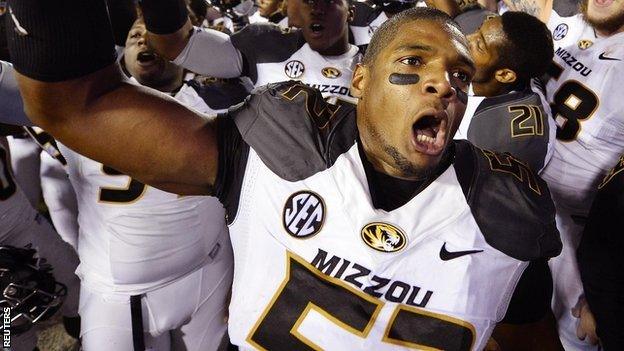
- Published28 February 2013
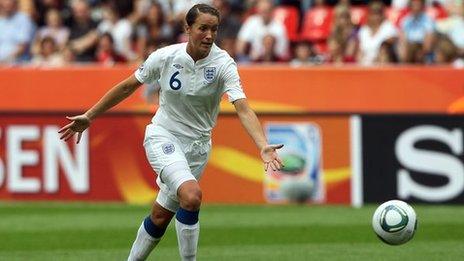
- Published4 May 2013
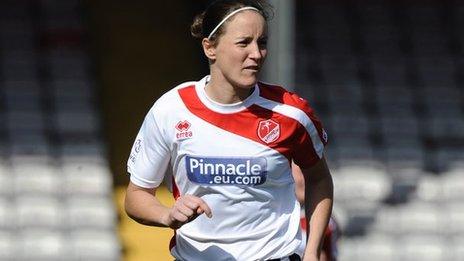
- Published2 January 2014
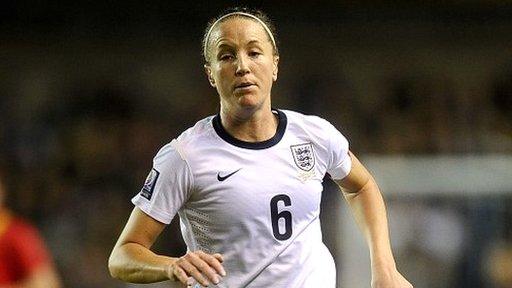
- Published2 January 2014
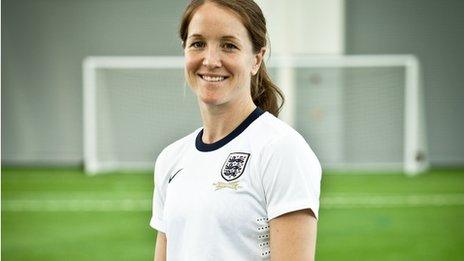
- Published13 November 2013
